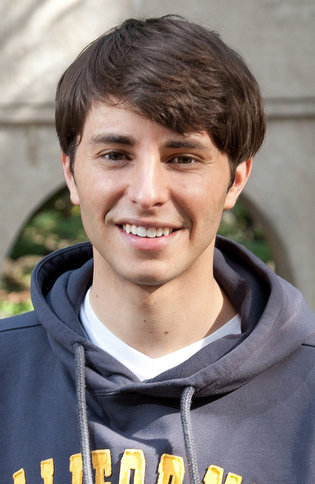New York Times:Report Faults Care of Peace Corps Volunteer
Report Faults Care of Peace Corps Volunteer
By Sheryl Gay Stolberg
New York Times
NOV. 24, 2014
WASHINGTON – A Peace Corps doctor caring for a gravely ill volunteer in China ignored a fellow physician’s warnings that the volunteer needed intravenous fluids “in 30 minutes or he is going to die,” and altered her notes about his treatment after submitting them to headquarters for review, according to a confidential report by the agency’s independent watchdog.
In a detailed examination of the death of Nick Castle, a 23-year-old volunteer who was the subject of an article in The New York Times in July, the Peace Corps inspector general cited “cascading delays and failures in the treatment” of Mr. Castle as a factor in the death, and said the Peace Corps doctor, Jin Gao, had “failed to use prudent judgment.”
Dr. Gao resigned in September and could not be reached for comment. The agency had previously said that while Mr. Castle’s death was “a tragic experience,” its own internal review – including an analysis by an outside expert – found that the death, from a gastrointestinal illness, could not have been prevented.
Nick Castle, a 2012 graduate of the University of California, Berkeley.

Photo by Clayton J. Mtchell
The inspector general’s report, which has not been made public, cites numerous medical lapses strongly suggesting that Mr. Castle’s death could in fact have been prevented, although it does not explicitly blame the Peace Corps.
More broadly, the report calls on the Peace Corps to make changes to its health care system, including giving its doctors more thorough training in gastrointestinal illnesses, the most common health complaint from volunteers. It also suggests the agency improve record-keeping.
Mr. Castle’s parents, who filed a $15 million wrongful death claim with the Peace Corps after the Times article was published, called the report a long overdue vindication.
“It’s what we’ve been saying all along,” Mr. Castle’s mother, Sue, said in an interview on Sunday. “I’m extremely resentful of the Peace Corps that I’ve had to push this hard to get something that should have been done in the first place.”
A spokeswoman for the Peace Corps, Shira Kramer, said Monday that agency officials were already putting some of the report’s recommendations in place, and took the findings “extremely seriously.”
The Times article focused on the Peace Corps’ health care system. In each of the 65 countries where the agency operates, it has at least one medical officer – a doctor, nurse, nurse practitioner or physician assistant – responsible for providing volunteers “adequate medical care wherever necessary.”
After the article appeared, a number of former volunteers came forward with their own concerns about Peace Corps health care, including complaints about the quality of care provided by Dr. Gao, a gynecologist who was hired as a primary care doctor for volunteers in China.
One former volunteer, William Harless, who served in Thailand in 2009 and now works in marketing in San Francisco, said a Thai nurse dismissed his complaints of excruciating pelvic pain as a result of anxiety, but it turned out he had a neurological problem. He called his treatment “upsetting and disillusioning.”
Mr. Castle joined the Peace Corps in 2012 as the agency was already making changes to its health care system. Before then, medical professionals were hired overseas by country officials who lacked medical experience. But by the time Mr. Castle was in China, Peace Corps medical staff in Washington controlled hiring. Dr. Gao, first hired in 2005, was vetted in Washington when the new system took effect.
Those changes grew out of an earlier, scathing report that exposed lapses in the care of another volunteer, who died in Morocco in 2009.
Mr. Castle first fell ill with diarrhea and fever in October 2012, a few months after he arrived to teach English in southwestern China. He was treated in a hospital for dehydration, but received scant follow-up care. He fell ill again with vomiting and diarrhea in January 2013, when, the report found, Dr. Gao failed to recognize that Mr. Castle was seriously dehydrated.
She did not call an ambulance even after her colleague, a cardiologist, warned that Mr. Castle could die. When she finally did call, the investigators found, “she failed to convey his critical condition,” telling Chinese medics only that Mr. Castle needed to go to the hospital “because he had diarrhea for several days.”
The report also cited “significant failures” with the care provided by the Chinese emergency medical technicians.
The Peace Corps has not yet responded to the Castles’ legal claim. A lawyer for the Castles, Todd Emanuel, said the report proved Mr. Castle’s death “was the result of reckless medical omissions.” Mr. Castle’s father, David, a police sergeant in Brentwood, Calif., said the couple was more interested in seeing the Peace Corps apologize, and improve care for all volunteers.
“It’s not about money,” Sergeant Castle said in the interview on Sunday. “It’s about change, and it’s about honesty.”
No comments yet.
Add your comment